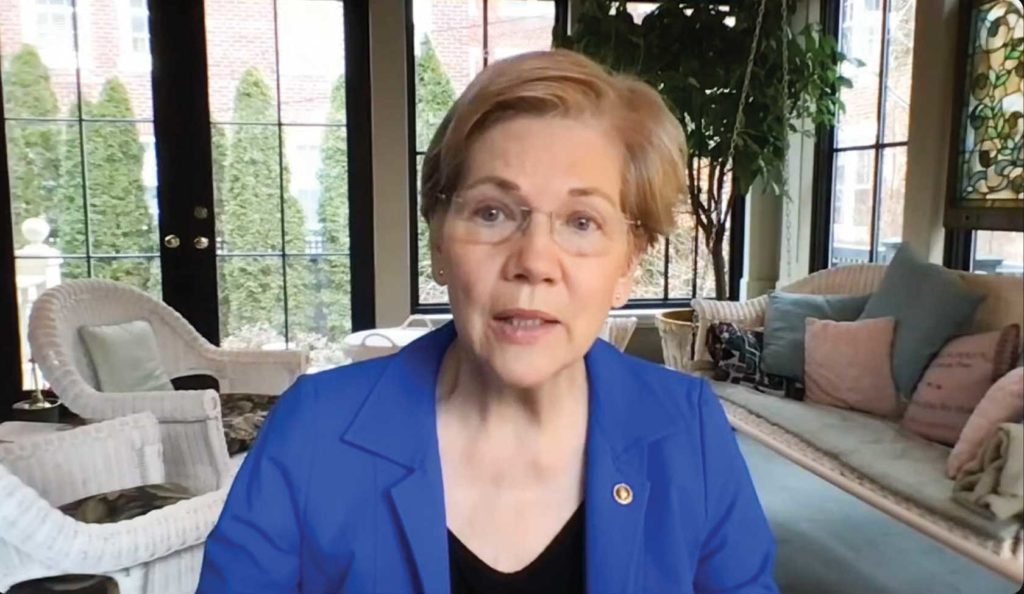Warren joins Poor People’s Campaign
Group fights for rights of low-wage workers

More than 50 years after Dr. Martin Luther King’s original Poor People’s Campaign and its March on Washington, a new iteration of intersectional leaders have announced their own action set to take place this summer, demanding voting rights protections for poor and minority communities disenfranchised across the country. Dubbed the “Mass Poor People’s and Low-Wage Workers’ Assembly and Moral March on Washington and to the Polls,” the action is slated for June 18, 2022.
According to Bishop William J. Barber II and Rev. Dr. Liz Theoharis, national co-chairs of the Poor People’s Campaign, the event is not just a day of action, but “a declaration of an ongoing, committed, nonviolent, truthtelling, multiracial, interfaith moral movement.”
A coalition of low-wage workers, economists, voting rights advocates and religious leaders were joined by progressive lawmakers in a virtual press conference announcing the plan last Friday. Organizers used the 90-minute call to highlight the need for voter empowerment and the growing inequality exacerbated now by the coronavirus pandemic.
“We won’t be silent anymore. Someone has been hurting our people for too long,” Barber said.
Barber called attention to the startling number of people in poverty — he cited a figure of 140 million — while noting the high number of deaths from related conditions of frontline work and lack of access to health care. Attempts by Democratic lawmakers to provide relief to low-wage workers have been stymied by obstruction from Republicans.
In their efforts to stymie Democratic reforms, Republicans have used the filibuster, which Democratic elected officials have been attempting to repeal in Washington this week in order to pave the way for additional voting rights bills. According to lawmakers on the left, the filibuster, which has been in practice since the 1930s, has been repeatedly used to block important civil rights legislation by Republicans.
Massachusetts Sen. Elizabeth Warren, who has been among those attempting to advance the voting rights legislation and do away with the filibuster, shared thoughts on the mission of the planned march and on her role in the current fight in the Senate.
“We have a once-in-¬a-generation opportunity to pass critical legislation that supports working families. We have a chance to rebuild our economy so that it works for everyone. We have a chance to address this moral crisis that has trapped Americans in a cycle of poverty,” she said.
Bills that are on the table if Republicans can be stripped of the ability to block them are the John R. Lewis Voting Rights Advancement Act and the Freedom to Vote Act, which would strengthen early and mail-in voting and protect voters from suppression tactics being employed by states by restoring oversight of elections to the federal Justice Department.
Historically and in recent years, states have employed poll taxes, strict ID laws and other racially and economically motivated tactics to decrease voters’ access to the polls.
Barber emphasized the filibuster’s negative consequences for many groups.
“We talk about the filibuster, about how it hurts Black people. The filibuster has hurt everybody in this country — Black folk, women, the labor movement,” he said.
Theoharis, in her address to those gathered virtually, made a call to action.
“People are dying from poverty and inequality,” she said. “The earth is on fire, so we’re signing up ambulance drivers. We’re running through the red lights of closed polling places and redistricting and other forms of voter suppression. We’re running through the red lights of poverty and homelessness and low wages and unemployment and abandonment in the midst of abundance.”anna






